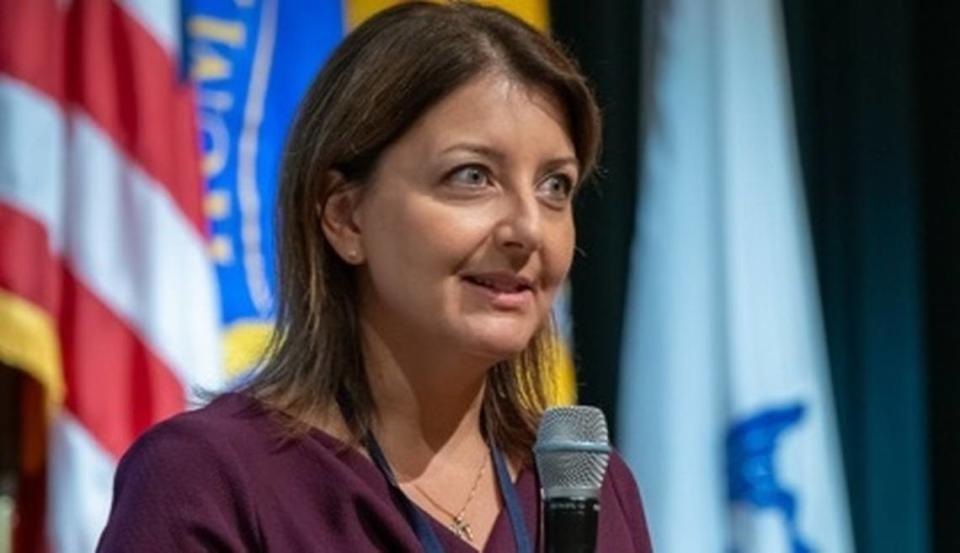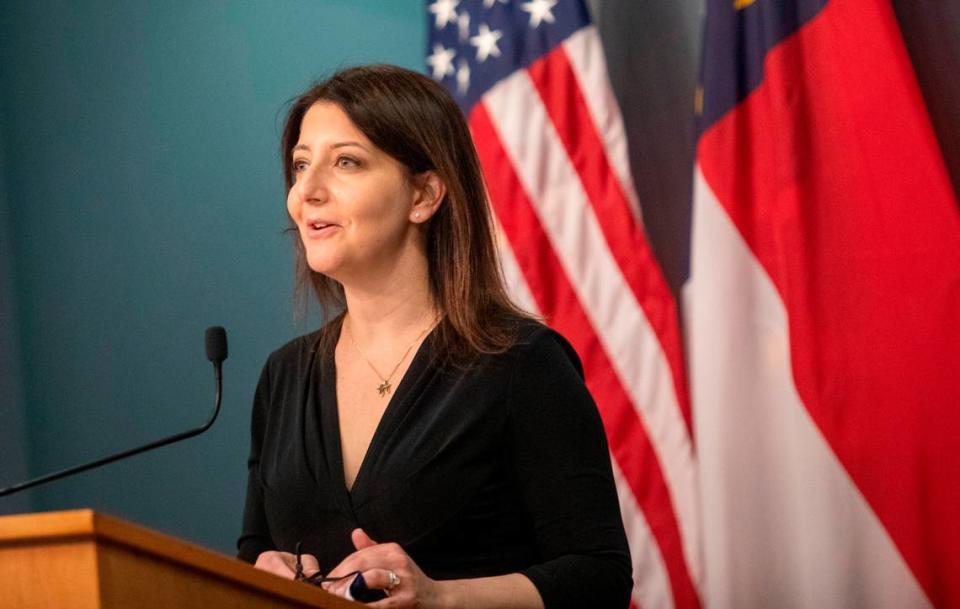Mandy Cohen, at her one-year mark, steers CDC from controversy back to trust | Opinion
As director of the Centers for Disease Control and Prevention Dr. Mandy Cohen sees her job as being centered on the last word – prevention.
“I think we’ve all learned a lot of lessons through COVID, not just those in public health, but elected officials and others,” she said. “What I’m focused on is stopping things before they become emergencies.”
Cohen, who was the secretary of North Carolina’s Department of Health and Human Services from 2017 to 2022, has done it well. She’s strengthened the nation’s ability to stamp out the sparks of infection.
“We’ve made a big investment in public health in the pandemic but we can’t just invest during a crisis,” she told me this week, about a year into her new post. “We have to stay prepared.”
Cohen has avoided the partisan anger that scorched other public health veterans of the pandemic, notably Dr. Anthony Fauci, the former director of the National Institute of Allergy and Infectious Diseases, and Cohen’s predecessor at the CDC, Rochelle Walensky. Both Fauci and Walensky left government service after they were unfairly subject to threats and combative congressional hearings for their roles in responding to COVID.
Cohen also saw opposition from those who resisted measures aimed at preventing COVID’s spread: shutdowns, mask mandates and vaccination requirements. When President Joe Biden nominated her for the CDC post, Republican North Carolina Sen. Ted Budd sent a letter to the president signed by six U.S. senators and 22 House members claiming Cohen had politicize the COVID response in North Carolina.
But Cohen is not only a skilled administrator, she is politically adept. She can simultaneously inspire her supporters and disarm her potential opponents. Despite her being the face of North Carolina’s COVID response, opposition never boiled up against her. She has also managed to keep her relations with Congress peaceful.
Cohen’s approach to leading has three principles: show up, listen and learn. She told me that’s what got her through her time in North Carolina after she arrived as a former chief of staff at the Centers for Medicare and Medicaid Services with an all-Ivy League education – Cornell B.A., Yale M.D. and a Harvard graduate degree in public health.
Although an appointee of Democratic Gov. Roy Cooper, she reached out to Republican lawmakers. She listened and responded to a state that she calls a “microcosm” of the nations, with its urban-rural split, its equally divided politics and its racial and ethnic diversity.
“Working in North Carolina was incredibly important to helping me think about how to be a CDC director for the whole country and, frankly, for the world,” she said.
After helping to guide North Carolina through the pandemic – a period in which North Carolina fared better than most of the South – Cohen, a New York native, said she bonded with her adopted state. “After we’ve been through a crisis together, I’m from North Carolina now,” she said.
Federal public health officials, especially at the CDC, lost public trust by issuing COVID guidance and mandates that were poorly explained, scientifically speculative and sometimes reversed. Cohen is gradually undoing that damage by being available and transparent about what her agency does – and doesn’t – know. She said polling shows the CDC has regained its pre-pandemic level of public confidence.
“I’ve traveled around the country. I think it’s important for folks to see me in person and for me to not just show up and listen, but so they can also hear what we are doing from the CDC side,” she said. “I think all of that has really helped us in terms of clear, simple commonsense actions and communication.”
Cohen’s approach – and perhaps the reason for her avoiding conservative opposition – is to transform the CDC from a font of public health dictates to a partner in informing people to make their own health decisions.
Associate opinion editor Ned Barnett can be reached at 919-404-7583, or nbarnett@ newsobserver.com



